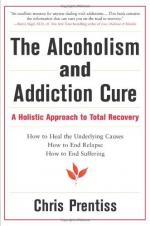|
This section contains 541 words (approx. 2 pages at 300 words per page) |

|
First formulated by Jan Smuts, holism has been traditionally defined as a philosophical theory that states that the determining factors in nature are wholes which are irreducible to the sum of their parts and that the evolution of the universe is the record of the activity and making of such wholes. More generally, it is the concept that wholes cannot be analyzed into parts or reduced to discrete elements without unexplainable residuals. Holism may also be defined by what it is not: it is not synonymous with organicism; holism does not require an entity to be alive or even a part of living processes. And neither is holism confined to spiritual mysticism, unaccessible to scientific methods or study.
The holistic approach in ecology and environmental science derives from the idea proposed by Harrison Brown that "a precondition for solving [complex] problems is a realization that all...
|
This section contains 541 words (approx. 2 pages at 300 words per page) |

|


